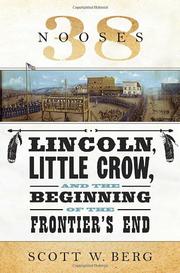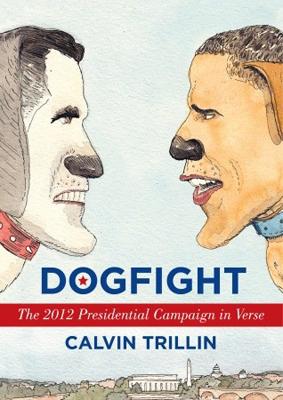In August 1862, after decades of broken
treaties, increasing hardship, and relentless encroachment on their
lands, a group of Dakota warriors convened a council at the tepee of
their leader, Little Crow. Knowing the strength and resilience of the
young American nation, Little Crow counseled caution, but anger won the
day. Forced to either lead his warriors in a war he knew they could not
win or leave them to their fates, he declared, “[Little Crow] is not a
coward: he will die with you.”
So began six weeks of intense conflict along the Minnesota frontier as the Dakotas clashed with settlers and federal troops, all the while searching for allies in their struggle. Once the uprising was smashed and the Dakotas captured, a military commission was convened, which quickly found more than three hundred Indians guilty of murder. President Lincoln, embroiled in the most devastating period of the Civil War, personally intervened in order to spare the lives of 265 of the condemned men, but the toll on the Dakota nation was still staggering: a way of life destroyed, a tribe forcibly relocated to barren and unfamiliar territory, and 38 Dakota warriors hanged—the largest government-sanctioned execution in American history.
Scott W. Berg recounts the conflict through the stories of several remarkable characters, including Little Crow, who foresaw how ruinous the conflict would be for his tribe; Sarah Wakefield, who had been captured by the Dakotas, then vilified as an “Indian lover” when she defended them; Minnesota bishop Henry Benjamin Whipple, who was a tireless advocate for the Indians’ cause; and Lincoln, who transcended his own family history to pursue justice.
Written with uncommon immediacy and insight, 38 Nooses details these events within the larger context of the Civil War, the history of the Dakota people, and the subsequent United States–Indian wars. It is a revelation of an overlooked but seminal moment in American history.
In his latest laugh-out-loud book of political verse, Calvin Trillin provides a riotous depiction of the 2012 presidential election campaign.
Dogfight is a narrative poem interrupted regularly by other poems and occasionally by what the author calls a pause for prose (“Callista Gingrich, Aware That Her Husband Has Cheated On and Then Left Two Wives Who Had Serious Illnesses, Tries Desperately to Make Light of a Bad Cough”). With the same barbed wit he displayed in the bestsellers Deciding the Next Decider, Obliviously On He Sails, and A Heckuva Job, America’s deadline poet trains his sights on the Tea Party (“These folks were quick to vocally condemn/All handouts but the ones that went to them”) and the slapstick field of contenders for the Republican nomination (“Though first-tier candidates were mostly out,/Republicans were asking, “What about/The second tier or what about the third?/Has nothing from those other tiers been heard?”). There is an ode to Michele Bachmann, sung to the tune of a Beatles classic (“Michele, our belle/Thinks that gays will all be sent to hell”) and passages on the exit of candidates like Herman Cain (“Although his patter in debates could tickle,/Cain’s pool of knowledge seemed less pool than trickle”) and Rick Santorum (“The race will miss the purity/That you alone endow./We’ll never find another man/Who’s holier than thou.”)
On its way to the November 6 finale, Trillin’s narrative takes us through such highlights as the January caucuses in frigid Iowa (“To listen to long speeches is your duty,/And getting there could freeze off your patootie”), the Republican convention (“It seemed like Clint, his chair, and their vignette/Had wandered in from some adjoining set”), and Mitt Romney’s secretly recorded “47 percent” speech, which inspired the “I Got the Mitt Thinks I’m a Moocher, a Taker not a Maker, Blues.”
Watch Calvin Trillin on the Daily Show HERE.
So began six weeks of intense conflict along the Minnesota frontier as the Dakotas clashed with settlers and federal troops, all the while searching for allies in their struggle. Once the uprising was smashed and the Dakotas captured, a military commission was convened, which quickly found more than three hundred Indians guilty of murder. President Lincoln, embroiled in the most devastating period of the Civil War, personally intervened in order to spare the lives of 265 of the condemned men, but the toll on the Dakota nation was still staggering: a way of life destroyed, a tribe forcibly relocated to barren and unfamiliar territory, and 38 Dakota warriors hanged—the largest government-sanctioned execution in American history.
Scott W. Berg recounts the conflict through the stories of several remarkable characters, including Little Crow, who foresaw how ruinous the conflict would be for his tribe; Sarah Wakefield, who had been captured by the Dakotas, then vilified as an “Indian lover” when she defended them; Minnesota bishop Henry Benjamin Whipple, who was a tireless advocate for the Indians’ cause; and Lincoln, who transcended his own family history to pursue justice.
Written with uncommon immediacy and insight, 38 Nooses details these events within the larger context of the Civil War, the history of the Dakota people, and the subsequent United States–Indian wars. It is a revelation of an overlooked but seminal moment in American history.
In his latest laugh-out-loud book of political verse, Calvin Trillin provides a riotous depiction of the 2012 presidential election campaign.
Dogfight is a narrative poem interrupted regularly by other poems and occasionally by what the author calls a pause for prose (“Callista Gingrich, Aware That Her Husband Has Cheated On and Then Left Two Wives Who Had Serious Illnesses, Tries Desperately to Make Light of a Bad Cough”). With the same barbed wit he displayed in the bestsellers Deciding the Next Decider, Obliviously On He Sails, and A Heckuva Job, America’s deadline poet trains his sights on the Tea Party (“These folks were quick to vocally condemn/All handouts but the ones that went to them”) and the slapstick field of contenders for the Republican nomination (“Though first-tier candidates were mostly out,/Republicans were asking, “What about/The second tier or what about the third?/Has nothing from those other tiers been heard?”). There is an ode to Michele Bachmann, sung to the tune of a Beatles classic (“Michele, our belle/Thinks that gays will all be sent to hell”) and passages on the exit of candidates like Herman Cain (“Although his patter in debates could tickle,/Cain’s pool of knowledge seemed less pool than trickle”) and Rick Santorum (“The race will miss the purity/That you alone endow./We’ll never find another man/Who’s holier than thou.”)
On its way to the November 6 finale, Trillin’s narrative takes us through such highlights as the January caucuses in frigid Iowa (“To listen to long speeches is your duty,/And getting there could freeze off your patootie”), the Republican convention (“It seemed like Clint, his chair, and their vignette/Had wandered in from some adjoining set”), and Mitt Romney’s secretly recorded “47 percent” speech, which inspired the “I Got the Mitt Thinks I’m a Moocher, a Taker not a Maker, Blues.”
Watch Calvin Trillin on the Daily Show HERE.


No comments:
Post a Comment